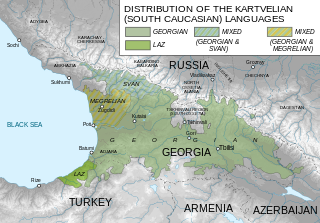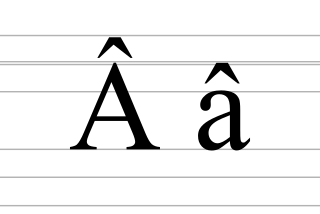In linguistics, homonyms are words which are either homographs—words that have the same spelling —or homophones—words that have the same pronunciation —or both. Using this definition, the words row, row and row are homonyms because they are homographs : so are the words see (vision) and sea, because they are homophones.

A homograph is a word that shares the same written form as another word but has a different meaning. However, some dictionaries insist that the words must also be pronounced differently, while the Oxford English Dictionary says that the words should also be of "different origin". In this vein, The Oxford Guide to Practical Lexicography lists various types of homographs, including those in which the words are discriminated by being in a different word class, such as hit, the verb to strike, and hit, the noun a strike.

A homophone is a word that is pronounced the same as another word but differs in meaning. The two words may be spelled the same, for example rose (flower) and rose, or spelled differently, as in rain, reign, and rein. The term homophone sometimes applies to units longer or shorter than words, for example a phrase, letter, or groups of letters which are pronounced the same as a counterpart. Any unit with this property is said to be homophonous.

Georgian is the most widely spoken Kartvelian language; it also serves as the literary language or lingua franca for speakers of related languages. It is the official language of Georgia and the native or primary language of 87.6% of its population. Its speakers today amount to approximately 3.76 million. Georgian is written in its own unique alphabet.
The acute accent, ◌́, is a diacritic used in many modern written languages with alphabets based on the Latin, Cyrillic, and Greek scripts. For the most commonly encountered uses of the accent in the Latin and Greek alphabets, precomposed characters are available.
In linguistics, and particularly phonology, stress or accent is the relative emphasis or prominence given to a certain syllable in a word or to a certain word in a phrase or sentence. That emphasis is typically caused by such properties as increased loudness and vowel length, full articulation of the vowel, and changes in tone. The terms stress and accent are often used synonymously in that context but are sometimes distinguished. For example, when emphasis is produced through pitch alone, it is called pitch accent, and when produced through length alone, it is called quantitative accent. When caused by a combination of various intensified properties, it is called stress accent or dynamic accent; English uses what is called variable stress accent.

Â, â (a-circumflex) is a letter of the Inari Sami, Skolt Sami, Romanian, Vietnamese and Mizo alphabets. This letter also appears in French, Friulian, Frisian, Portuguese, Turkish, Walloon, and Welsh languages as a variant of the letter "a". It is included in some romanization systems for Khmer, Persian, Balinese, Sasak, Russian, and Ukrainian.
Initial-stress derivation is a phonological process in English that moves stress to the first syllable of verbs when they are used as nouns or adjectives. This process can be found in the case of several dozen verb-noun and verb-adjective pairs and is gradually becoming more standardized in some English dialects, but it is not present in all. The list of affected words differs from area to area, and often depends on whether a word is used metaphorically or not. At least 170 verb-noun or verb-adjective pairs exist. Some examples are:
A pitch-accent language is a type of language that, when spoken, has certain syllables in words or morphemes that are prominent, as indicated by a distinct contrasting pitch rather than by loudness or length, as in some other languages like English. Pitch-accent languages also contrast with fully tonal languages like Vietnamese, Thai and Standard Chinese, in which practically every syllable can have an independent tone. Some scholars have claimed that the term "pitch accent" is not coherently defined and that pitch-accent languages are just a sub-category of tonal languages in general.
In the phonology of the Romanian language, the phoneme inventory consists of seven vowels, two or four semivowels, and twenty consonants. In addition, as with other languages, other phonemes can occur occasionally in interjections or recent borrowings.
Stress is a prominent feature of the English language, both at the level of the word (lexical stress) and at the level of the phrase or sentence (prosodic stress). Absence of stress on a syllable, or on a word in some cases, is frequently associated in English with vowel reduction – many such syllables are pronounced with a centralized vowel (schwa) or with certain other vowels that are described as being "reduced". Various phonological analyses exist for these phenomena.
In an alphabetic writing system, a silent letter is a letter that, in a particular word, does not correspond to any sound in the word's pronunciation. In linguistics, a silent letter is often symbolised with a null sign U+2205∅EMPTY SET. Null is an unpronounced or unwritten segment. The symbol resembles the Scandinavian letter Ø and other symbols.
In linguistics, a suprafix is a type of affix that gives a suprasegmental pattern to either a neutral base or a base with a preexisting suprasegmental pattern. This affix will, then, convey a derivational or inflectional meaning. This suprasegmental pattern acts like segmental phonemes within a morpheme; the suprafix is a combination of suprasegmental phonemes, organized into a pattern, that creates a morpheme. For example, a number of African languages express tense / aspect distinctions by tone. English has a process of changing stress on verbs to create nouns.
The grave accent is a diacritical mark used to varying degrees in French, Dutch, Portuguese, Italian, Catalan and many other western European languages as well as for a few unusual uses in English. It is also used in other languages using the Latin alphabet, such as Mohawk and Yoruba, and with non-Latin writing systems such as the Greek and Cyrillic alphabets and the Bopomofo or Zhuyin Fuhao semi-syllabary. It has no single meaning, but can indicate pitch, stress, or other features.

Portuguese orthography is based on the Latin alphabet and makes use of the acute accent, the circumflex accent, the grave accent, the tilde, and the cedilla to denote stress, vowel height, nasalization, and other sound changes. The diaeresis was abolished by the last Orthography Agreement. Accented letters and digraphs are not counted as separate characters for collation purposes.

A heteronym is a word that has a different pronunciation and meaning from another word but the same spelling. These are homographs that are not homophones. Thus, lead and lead are heteronyms, but mean (average) and mean (intend) are not, since they are pronounced the same. Heteronym pronunciation may vary in vowel realisation, in stress pattern, or in other ways.
The phonology of Turkish deals with current phonology and phonetics, particularly of Istanbul Turkish. A notable feature of the phonology of Turkish is a system of vowel harmony that causes vowels in most words to be either front or back and either rounded or unrounded. Velar stop consonants have palatal allophones before front vowels.

Maliseet-Passamaquoddy is an endangered Algonquian language spoken by the Maliseet and Passamaquoddy peoples along both sides of the border between Maine in the United States and New Brunswick, Canada. The language consists of two major dialects: Maliseet, which is mainly spoken in the Saint John River Valley in New Brunswick; and Passamaquoddy, spoken mostly in the St. Croix River Valley of eastern Maine. However, the two dialects differ only slightly, mainly in their phonology. The indigenous people widely spoke Maliseet-Passamaquoddy in these areas until around the post-World War II era when changes in the education system and increased marriage outside of the speech community caused a large decrease in the number of children who learned or regularly used the language. As a result, in both Canada and the U.S. today, there are only 600 speakers of both dialects, and most speakers are older adults. Although the majority of younger people cannot speak the language, there is growing interest in teaching the language in community classes and in some schools.
In the Lithuanian phonology, stressed heavy syllables are pronounced in one of two prosodically distinct ways. One way is known as the acute or falling accent: this may be described as "sudden, sharp or rough". In Lithuanian it is called tvirtaprãdė príegaidė, literally 'firm-start accent'. The second way is known as the circumflex or rising accent, which may be described as "continued, mild or smooth". In Lithuanian it is called tvirtagãlė príegaidė, literally 'firm-end accent'. Light syllables may be stressed or unstressed, but cannot be differentiated by accent.

Proto-Slavic is the unattested, reconstructed proto-language of all Slavic languages. It represents Slavic speech approximately from the 2nd millennium BC through the 6th century AD. As with most other proto-languages, no attested writings have been found; scholars have reconstructed the language by applying the comparative method to all the attested Slavic languages and by taking into account other Indo-European languages.






